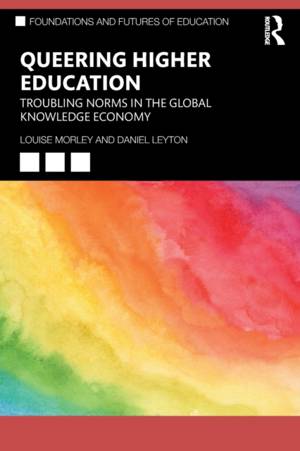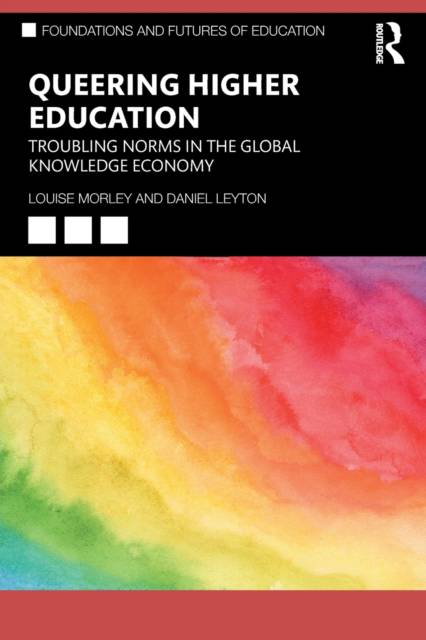
- Retrait gratuit dans votre magasin Club
- 7.000.000 titres dans notre catalogue
- Payer en toute sécurité
- Toujours un magasin près de chez vous
- Retrait gratuit dans votre magasin Club
- 7.000.0000 titres dans notre catalogue
- Payer en toute sécurité
- Toujours un magasin près de chez vous
Queering Higher Education
Troubling Norms in the Global Knowledge Economy
Louise Morley, Daniel Leyton
71,95 €
+ 143 points
Format
Description
Drawing on empirical data from diverse international contexts this book examines sites of affective antagonisms, fragility, and friction, and explores whether queer theory can provide alternative readings of contemporary pathways, pedagogical and research cultures, political economies, and policy priorities with higher education.
Spécifications
Parties prenantes
- Auteur(s) :
- Editeur:
Contenu
- Nombre de pages :
- 194
- Langue:
- Anglais
- Collection :
Caractéristiques
- EAN:
- 9781032190358
- Date de parution :
- 30-12-22
- Format:
- Livre broché
- Format numérique:
- Trade paperback (VS)
- Dimensions :
- 156 mm x 234 mm
- Poids :
- 290 g

Les avis
Nous publions uniquement les avis qui respectent les conditions requises. Consultez nos conditions pour les avis.






